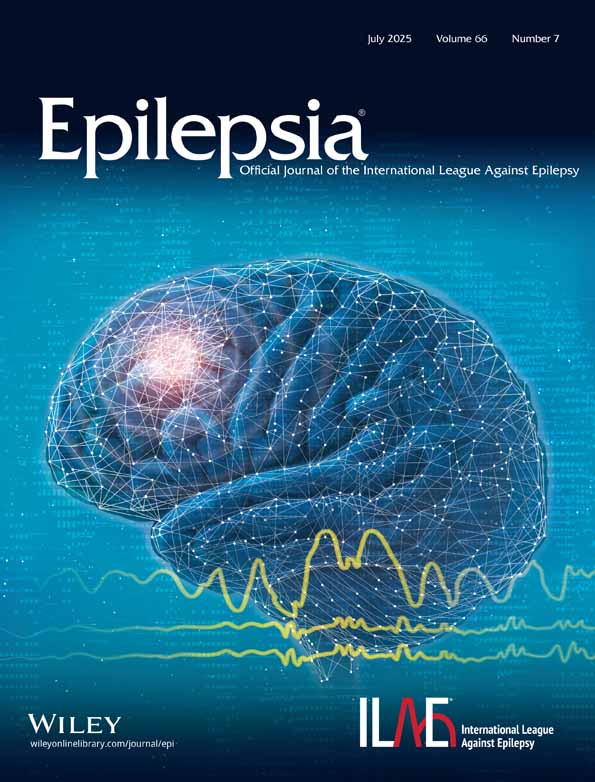A Beneficial Effect on Mood in Partial Epilepsy Patients Treated with Gabapentin
Abstract
Summary: Purpose: Antiepileptic drugs (AEDs) are frequently used for their beneficial psychoactive effects on affective disorders. We sought to demonstrate a psychoactive effect of gabapentin (GBP) when used as add-on AED therapy.
Methods: Forty adult patients with partial epilepsy were studied in a prospective, non-randomized fashion with interviewer-rated and self-rated scales of mood and anxiety: the Cornell Dysthymia Rating Scale (CDRS), Beck Depression Inventory (BDI), and Hamilton Depression (Ham-D) and Anxiety (Ham-A) Scales. After completion of baseline mood and anxiety scales (time 1), 20 of the 40 patients were prescribed add-on GBP (treated group). The remaining 20 patients served as a control group. Both groups were similar in age and sex distribution. Follow-up mood and anxiety scales were performed in all patients ∼3 months later (time 2). The average GBP dose at time 2 was 1,615 mg/day. All patients were taking stable doses of one to four AEDs at baseline and throughout the study. Seizure frequency was monitored throughout. Statistical significance was assessed by analysis of variance (ANOVA) by using a two-factor repeated-measures model.
Results: The GBP-treated group had a significant decrease in CDRS score over time compared with the control group (p = 0.04). No significant differences between the control and the treated groups were found for any of the remaining mood scales (BDI, p = 0.58; Ham-D, p = 0.59; Ham-A, p = 0.93). There was no significant difference or change in seizure frequency between groups.
Conclusions: GBP treatment is associated with mood improvement as measured by the CDRS. This improvement was not accounted for by seizure improvement.




